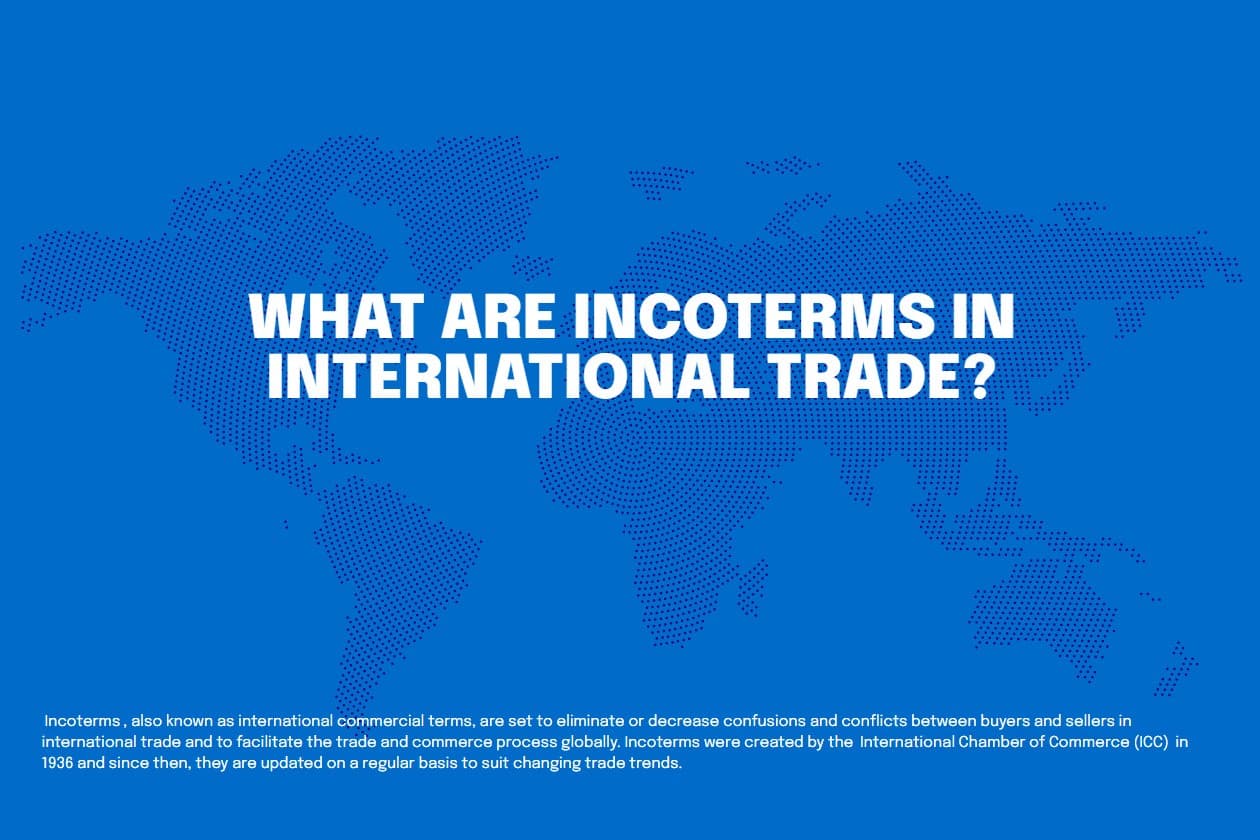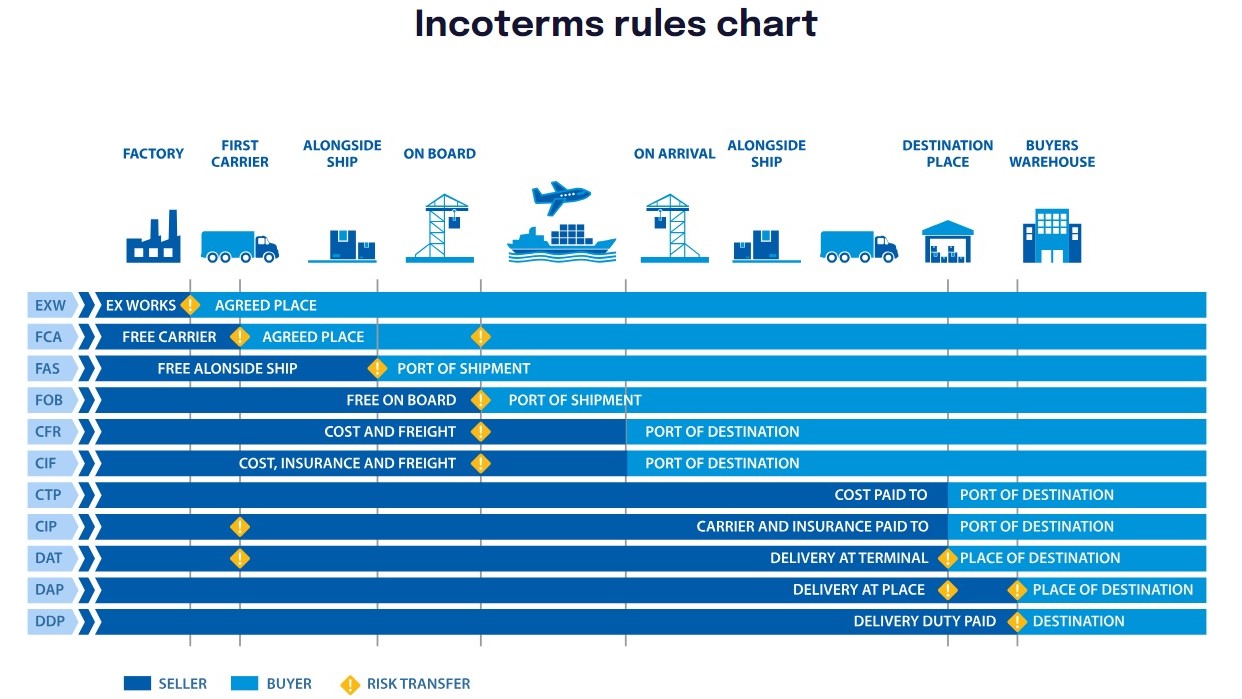
Incoterms 2010, short for International Commercial Terms, are a set of standardized trade terms used in international commercial transactions. They were created by the International Chamber of Commerce (ICC) to avoid misunderstandings between buyers and sellers in different countries and to establish a common set of rules for the international sale of goods. These terms are widely used in international trade and are essential for determining the responsibilities and risks of both the buyer and the seller.
There are a total of 11 Incoterms in the Incoterms 2010 set, which are divided into four categories based on the mode of transport used:
Incoterms for Any Mode of Transport:
EXW (Ex Works): The seller is responsible for making the goods available at their premises, and the buyer is responsible for all transportation costs and risks from that point.
FCA (Free Carrier): The seller delivers the goods, cleared for export, to the carrier nominated by the buyer at a named place. The buyer is responsible for the main carriage, insurance, and unloading at the destination.
Incoterms for Sea and Inland Waterway Transport:
FAS (Free Alongside Ship): The seller delivers the goods alongside the vessel at the named port of shipment. The buyer is responsible for loading the goods onto the vessel and for all costs from that point.
FOB (Free On Board): The seller is responsible for delivering the goods on board the vessel at the named port of shipment. The buyer bears all costs and risks from that point.
Incoterms for Sea and Inland Waterway Transport Only:
CFR (Cost and Freight): The seller is responsible for delivering the goods on board the vessel at the named port of shipment, as well as for the costs and freight necessary to bring the goods to the named port of destination.
CIF (Cost, Insurance, and Freight): Similar to CFR, but the seller also has to procure marine insurance against the buyer's risk of loss or damage during the carriage.
Incoterms for Any Mode of Transport:
CPT (Carriage Paid To):The seller delivers the goods to the carrier, who is responsible for the main carriage to the named place of destination. The seller also has to bear the risks and costs associated with the transportation.
CIP (Carriage and Insurance Paid To): Similar to CPT, but with the addition of the seller having to procure insurance against the buyer's risk of loss or damage during the carriage.
DAT (Delivered at Terminal): The seller delivers the goods, unloaded from the arriving means of transport, at a named terminal at the named port or place of destination.
DAP (Delivered at Place): The seller delivers the goods when they are placed at the disposal of the buyer on the arriving means of transport, ready for unloading. The seller bears the risks and costs until the goods are ready for unloading at the named place of destination.
DDP (Delivered Duty Paid): The seller is responsible for delivering the goods, cleared for import, to the named place of destination. The seller also has to bear all the risks and costs associated with the transportation, as well as any duties, taxes, and other charges.

It is important for both buyers and sellers to understand these terms and their implications when negotiating international contracts. Using the correct Incoterms can help avoid disputes and ensure a smooth and efficient international trade transaction.
In conclusion, Incoterms 2010 are a crucial element of international trade, and they play a significant role in determining the responsibilities and risks of both the buyer and the seller. It is important to have a clear understanding of these terms and to use them appropriately to ensure a successful international commercial transaction.
References:
https://www.customs.gov.tm/pdf/inc2010.pdf
International Chamber of Commerce (ICC): https://iccwbo.org/
"Incoterms 2010" by the International Chamber of Commerce: https://iccwbo.org/resources-for-business/incoterms -rules/incoterms-2010/